ڈاکٹر حافظ محمد زبیر صاحب تلخیص : زید حسن اس ویڈیو میں سپیکر حافظ محمد زبیر صاحب نے " بعض افراد" کے اس دعوے کہ آپ کی تفہیمِ غامدی درست نہیں ، کو...
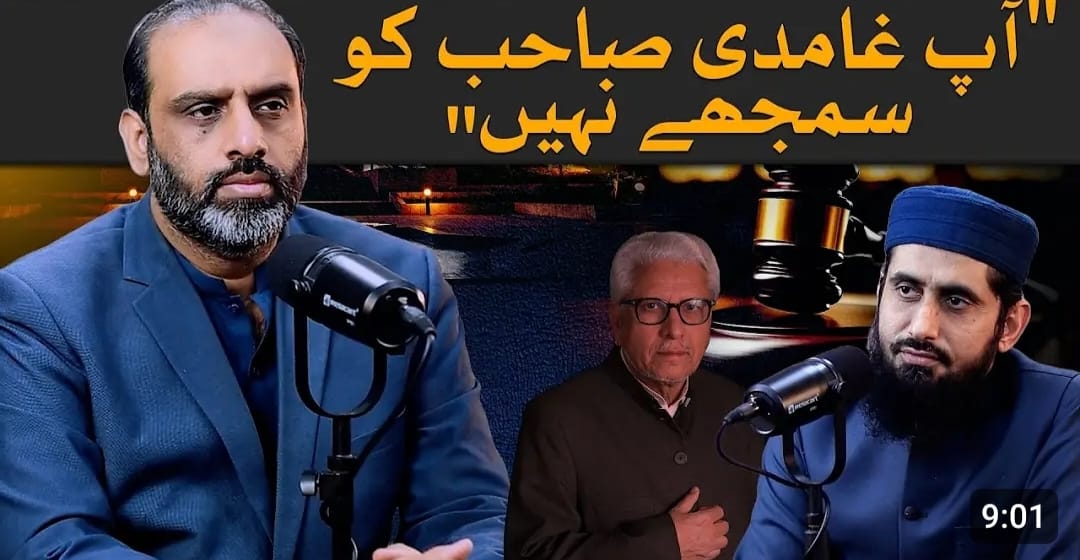

ڈاکٹر حافظ محمد زبیر صاحب تلخیص : زید حسن اس ویڈیو میں سپیکر حافظ محمد زبیر صاحب نے " بعض افراد" کے اس دعوے کہ آپ کی تفہیمِ غامدی درست نہیں ، کو...
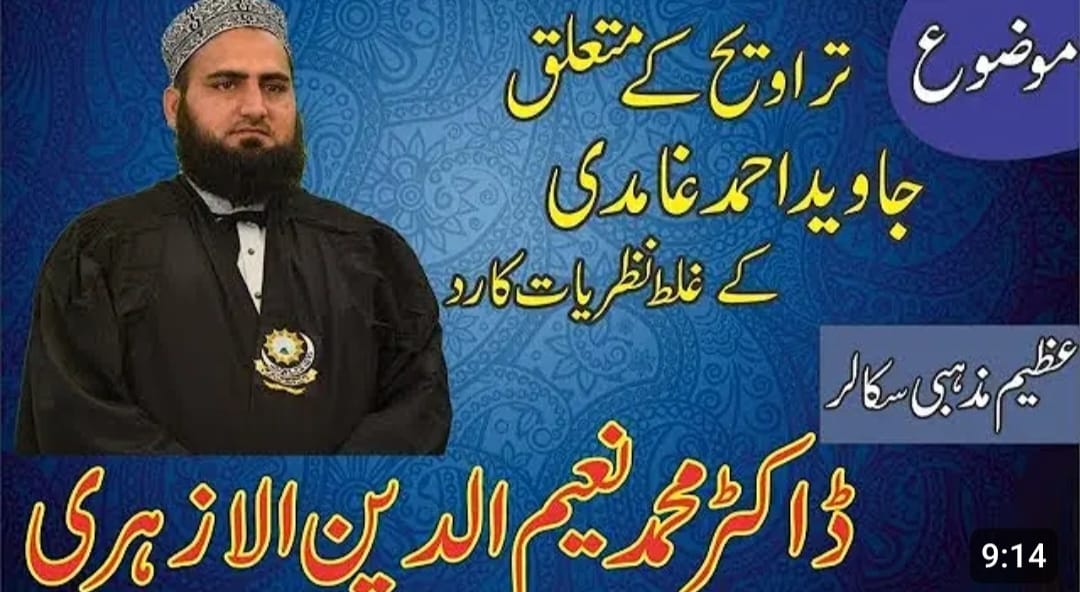
ڈاکٹر نعیم الدین الازہری صاحب تلخیص : زید حسن رمضان المبارک کی بابرکت ساعات میں امتِ مسلمہ روزے اور عبادات میں مشغول ہے ، لیکن سوشل میڈیا پر چند...

مفتی طارق مسعود صاحب تلخیص : زید حسن مسئلہ پوچھا گیا ہے کہ کیا تراویح کی نماز یوٹیوب پر لگا کر اسکی اقتداء میں پڑھ سکتے ہیں؟یہ غامدی صاحب نے نیا...
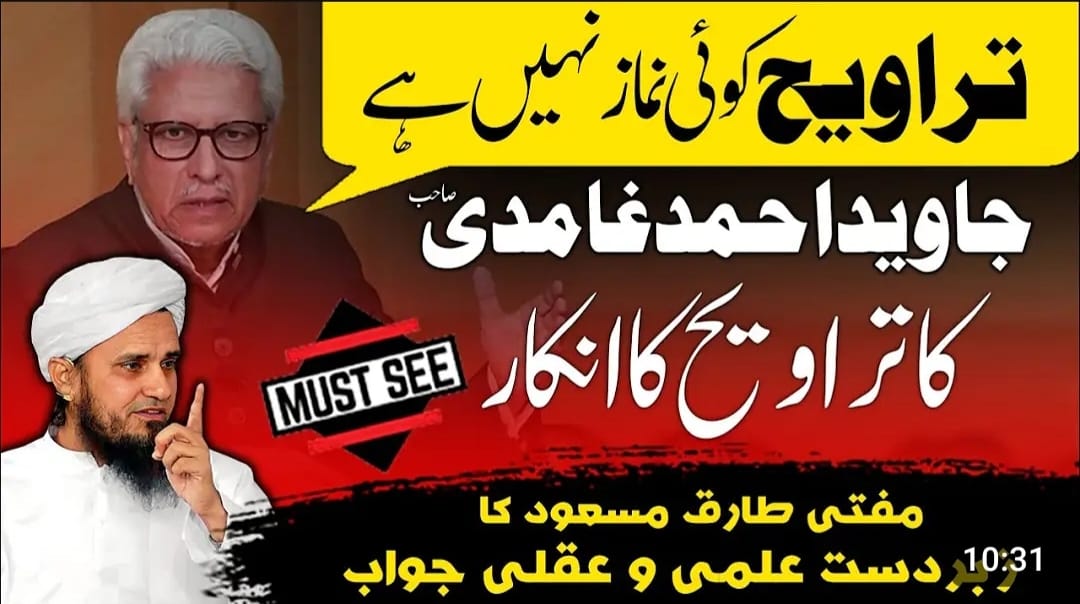
مفتی طارق مسعود صاحب تلخیص : زید حسن غامدی صاحب نے یہ بات کی ہے کہ تراویح سرے سے کوئی نماز ہی نہیں ہے ۔ اور اسکی ابتداء حضرت عمر کے دور میں ہوئی ہے۔...
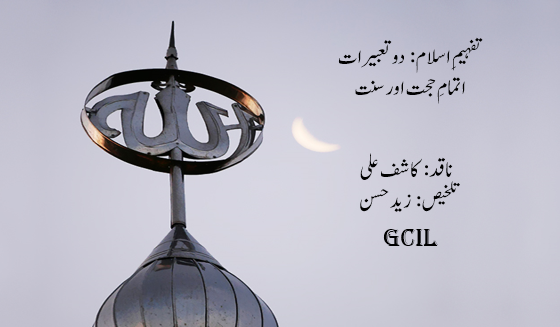
ناقد : کاشف علی تلخیص : زید حسن غامدی صاحب سے جزئیات پر بات نہیں ہو سکتی ۔ دین کی دو تعبیرات ہیں ۔ ایک تعبیر کے مطابق اسلام سیاسی سسٹم دیتا ہے ۔...
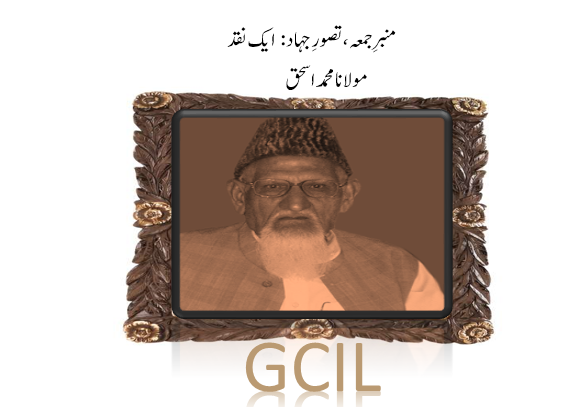
ناقد : مولانا اسحق صاحب تلخیص : زید حسن اول ۔ یہ کہنا کہ جمعہ کا منبر علماء سے واپس لے لینا چائیے کیونکہ اسلامی تاریخی میں جمعہ کے منبر کا علماء کے...
State and Government
[Written in response to criticisms of “Islam and the State: A Counter Narrative”.]
The state and the government are not coextensive entities. In political science terms, the state is the political organization of society, and the government refers to the individuals and groups responsible for maintaining order and administering the functions of the state.
First, consider the state. The types of states that have emerged in the world so far are fundamentally three.
First, the state that emerged in the Arabian Peninsula, whose boundaries were determined by the Creator Himself, who chose it specifically for His purpose. Hence, under His command, the center of His call and worship was established there, and through the mediation of the last Prophet in the seventh century CE, it was declared that “Two religions cannot coexist therein”—”From now until the Day of Judgment, no non-Muslim can become its citizen.” Before this, the state established in the region of modern day Palestine held this status for many centuries. The addressees of Islam and Islamic Shariah here will also be individuals in their various capacities; however, it is understandable to say of such a state that its religion is Islam and that its government will also be Islamic, to which no objection can be raised.
Second, those states whose boundaries are determined by conquerors, who conquered these territories and subjugated their residents to govern them. In such states, the religion and ideology of the royal family or ruling group became the religion or ideology of the state. Regardless of whether their existence is legitimate or illegitimate, it’s also understandable to refer to these states as Muslim, Christian, or communist states.
Third, the modern nation-states, whose boundaries are defined by international treaties, which then provide nationality to their residents from the moment of their establishment. Therefore, regardless of their shared features or differences, whether in color, race, language, religion, and culture, they refer to themselves and express their nationality as Indian, Egyptian, American, Afghan, and Pakistani. None among the citizens is a ruler or a subject; rather, all are considered equal citizens and participate in the government in this capacity.
It is these contemporary states about which I have written that they cannot have a religion. The State of Pakistan is one such state. Everyone knows that no decree has been sent down from the heavens for it, which states that, like the Arabian Peninsula, it must be a country only for Muslims; nor have Muslims conquered it and made non-Muslims living in it their subjects; nor have they become citizens of this state as a result of any international agreement. Its peoples have been residents of this land for centuries, just as the Muslims too are its residents, and the state is as much theirs as it is of the Muslims.
The partition of India was not based on the principle that one part belonged to Muslims and the other to Hindus and that followers of other religions were made their subjects; rather, it was done on the principle that those parts of British India where Muslims were in the majority would become a separate country, and the rulers of the Indian states would be free to either maintain their independence or join either India or Pakistan, regardless of whether the majority of their subjects were Muslims, Hindus, or from any other religious group.
Any attempt to transform such a state into a Muslim, Christian, or Hindu state through majority force would be an act of tyranny and despotism. Such an action cannot be supported by anyone who is commanded by their Lord to uphold justice and bear witness to the truth, even when it goes against their own community.
A record in favor of Pakistan’s non-Muslim residents must now be etched into the pages of history—a testament to the principle clearly articulated by the founder of the state, Quaid-e-Azam Muhammad Ali Jinnah, in his address to the Constituent Assembly on August 11, 1947. He had stated:
“You are free. You are free to go to your temples, your mosques, or any other place of worship in this State of Pakistan. You may belong to any religion, caste, or creed—that has nothing to do with the business of the State… We are starting with the fundamental principle that we are all citizens and equal citizens of one State. The people of England had to accept their mutual differences and responsibilities gradually, and they gradually emerged from that fiery ordeal. You may well say that there are neither Roman Catholics nor Protestants anymore; there is just the individual who is a citizen, and all are equal citizens of Great Britain. All of them are citizens of one State. I believe that we should keep this ideal in front of us, and then you will see that as time passes, neither Hindu will remain Hindu nor Muslim, Muslim—not in the religious sense, because that is a matter of personal faith, but politically, as citizens of the State.” (Quaid-e-Azam: Speeches and Statements, Vol. 4, p. 359)
The question may arise, that does Islam accept such a state? In response, I submit that Islam’s invitation is directed toward the decision-makers of society. If they are Muslims, they are also addressed by Islam’s commands related to the collective system. However, Islam does not instruct them to bring the state under Islamic rule. Therefore, its followers can live as citizens and form a nation based on their homeland within such nation-states, as is currently the case in most of the world. There is nothing in this arrangement that contradicts Islam or Islamic Shariah.
This is my stance regarding the nation-states of the present era. Now, consider the government. Logically and in keeping with history, only two things can be said regarding this: one is that the Creator of mankind will appoint the ruler and the decision-makers for the state; second is that the residents of the state will assume this responsibility. With the finality of prophethood in the person of Prophet Muhammad (peace be upon him), the possibility of the first has ended forever. Now, only the latter remains, which inevitably results in majority rule.
If this majority is Muslim and thereby gains power in any state, it is their democratic and human right to follow any commands related to collective life that their religion prescribes, governing the affairs of its followers according to the Shariah revealed by their Lord through His last Prophet. When Quaid-e-Azam invokes Islam, Islamic civilization, and Islamic Shariah in the context of Pakistan, this is what he means.
The relationship between Shariah and the modern nation-states is established precisely at this juncture and in this manner, which I have endeavored to explain. With this understanding, I have compiled and presented a comprehensive list of the Shariah’s injunctions related to collective life, highlighting that these commands are given to Muslims with a solemn warning: those who believe in God’s Book yet fail to decide according to His revealed law will be regarded as oppressors, transgressors, and disbelievers before Him on the Day of Judgment.
“Scholars may, with evidence, disagree with the list I have compiled, amending or adding to it as they see fit. However, if, after understanding the distinction between state and government and reviewing this list, they still claim that I have confined Shariah to personal life or denied its commands regarding politics, economy, society, and collective systems—and this is not mere willful ignorance—then what else can be said to them except:
‘The error, my dear, is due to the fact that you were not a connoisseur of words.’
[2015]
All quality educational content on this site is made possible only by generous donations of sponsors like you. In order to allow us to continue our effort, please consider donating whatever you can!
We work day in and day out to produce well-researched, evidence based, quality education so that people may gain the correct understanding of their religion. But our effort costs a lot of money! Help us continue and grow our effort so that you may share in our reward too!
Supremacy of the Parliament [Written in response to criticisms of "Islam...
Islam and Nationality [Written in response to criticisms of "Islam and...
Caliphate [Written in response to criticisms of "Islam and the State: A...